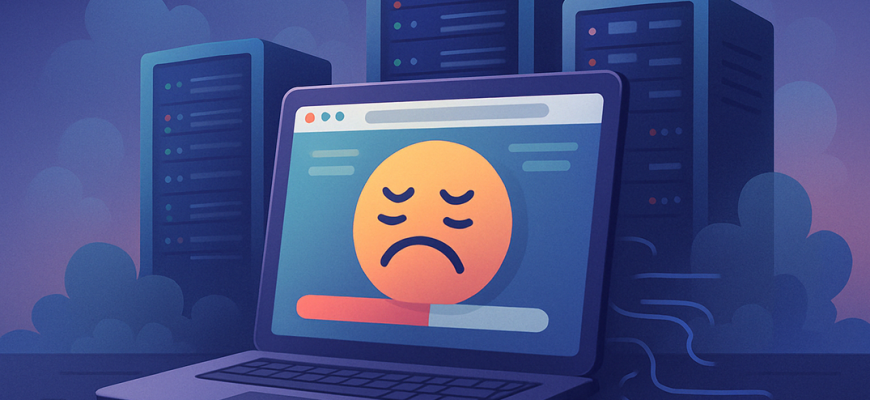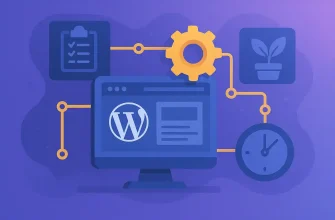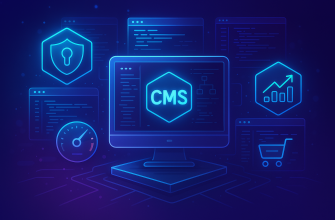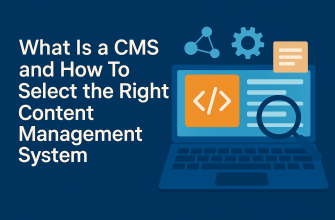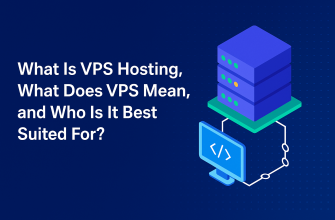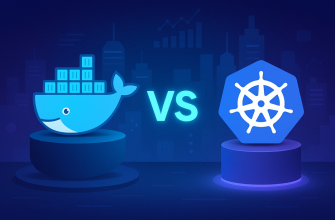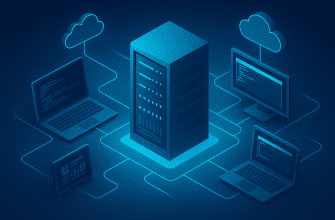In today’s fast-paced digital world, website speed is a crucial factor for user satisfaction and SEO rankings. When you invest in a dedicated server, you expect lightning-fast performance, yet many website owners still experience sluggish load times. So, why is your website still slow even when you have a dedicated server?
In this article, we’ll explore the common reasons behind slow website performance, even with top-tier hosting. Understanding these issues will help you troubleshoot and optimize your website for better performance.
- 1. Overloaded Server Resources
- 2. Unoptimized Website Code
- 3. Heavy Images and Media Files
- 4. Lack of Caching
- 5. Excessive HTTP Requests
- 6. Not Using a Content Delivery Network (CDN)
- 7. Database Inefficiencies
- 8. Too Many External Scripts and Plugins
- 9. Software and Server Configuration Issues
- 10. Poor Web Hosting Practices
- Conclusion
1. Overloaded Server Resources
One of the most common causes of slow website performance on a dedicated server is overloaded server resources. Dedicated servers give you exclusive access to the server’s CPU, RAM, and storage, but if your server is handling too many tasks or heavy traffic, it can still slow down.
Solution: Monitor your server’s performance regularly. Use server monitoring tools to track CPU and memory usage. If necessary, optimize your website to use fewer resources, or upgrade your server to meet your traffic demands.
2. Unoptimized Website Code
Even with a powerful server, inefficient code can slow down your website. Whether it’s bloated HTML, JavaScript, or CSS files, or a lack of minification and compression, unoptimized code can have a significant impact on load times.
Solution: Clean up your website’s code by removing unnecessary elements and optimizing your HTML, CSS, and JavaScript. Tools like Google PageSpeed Insights and GTmetrix can provide specific recommendations for improving your website’s code efficiency.
3. Heavy Images and Media Files
Large images and media files are a common culprit in slow website performance. Even though a dedicated server can handle large files, serving them without optimization can cause significant delays, especially on mobile devices.
Solution: Optimize images by reducing their file size without compromising quality. Use formats like WebP for better compression, and consider implementing lazy loading for images and videos. This ensures media files are loaded only when needed.
4. Lack of Caching
Caching is a powerful tool for speeding up website load times by storing static versions of your site’s content. Without proper caching, every time a user visits your site, the server has to generate the page from scratch, which can slow down the performance.
Solution: Implement browser caching, server-side caching, and content delivery network (CDN) caching. Popular caching plugins for CMS platforms like WordPress (e.g., W3 Total Cache or WP Rocket) can help reduce load times significantly.
5. Excessive HTTP Requests
Each time a browser loads a page, it makes HTTP requests to the server for various resources such as images, stylesheets, and scripts. The more HTTP requests your page has, the longer it will take to load, regardless of your server’s power.
Solution: Minimize HTTP requests by combining CSS and JavaScript files, using image sprites, and reducing the number of external resources. Tools like Google PageSpeed Insights can help you identify excessive requests.
6. Not Using a Content Delivery Network (CDN)
A dedicated server can provide high performance for visitors close to your server’s physical location, but for global audiences, distance can still affect load times. A Content Delivery Network (CDN) can solve this problem by caching your website’s content on servers around the world.
Solution: Use a CDN to reduce latency and deliver content faster to users, regardless of their geographic location. Popular CDNs include Cloudflare, Akamai, and AWS CloudFront.
7. Database Inefficiencies
For dynamic websites that rely on databases (such as e-commerce platforms or CMS-based sites), slow database queries can significantly impact performance. An inefficient database, lack of indexing, or outdated queries can cause delays in page generation.
Solution: Optimize your database by using proper indexing, regular cleanup, and optimizing queries. Regular database maintenance, such as removing old data and reducing query complexity, can also improve performance.
8. Too Many External Scripts and Plugins
External scripts such as ad networks, social media feeds, and analytics tools can add extra weight to your pages. While these services might be essential for functionality or tracking, they can also slow down your website if not properly managed.
Solution: Limit the number of external scripts and ensure that the ones you use are from trusted sources. You can also load some scripts asynchronously, which allows the rest of the page to load while the script is being processed.
9. Software and Server Configuration Issues
Sometimes, slow performance on a dedicated server is due to server misconfigurations or outdated software. If your server’s software (such as PHP, MySQL, or Nginx) is outdated or improperly configured, it can result in slower performance.
Solution: Keep your server’s software up-to-date and configure it properly. If you’re unsure about server configurations, it’s wise to consult with a server administrator or hosting provider to ensure optimal settings for your website.
10. Poor Web Hosting Practices
Not all dedicated hosting providers are created equal. Some may offer high-performance servers but fail to provide adequate support, regular maintenance, or proactive monitoring. This can lead to performance issues that remain undetected.
Solution: Choose a reputable hosting provider that offers robust support, regular server maintenance, and performance optimization tools. Ensure that your hosting package meets the needs of your website’s traffic and resource usage.
Conclusion
Even on a dedicated server, your website can still experience slow loading times if underlying issues such as unoptimized code, heavy media files, or poor server configurations are present. By following the solutions outlined above, you can troubleshoot and optimize your website for speed, ensuring better performance, higher user satisfaction, and improved SEO rankings.
Regularly monitor your website’s performance and stay proactive about optimization to make sure your website runs at its best, regardless of the server it’s hosted on.

